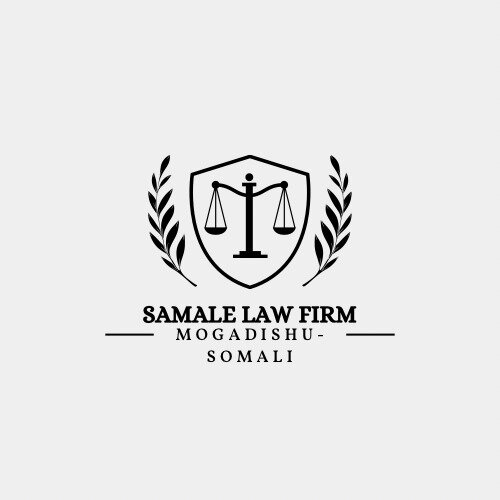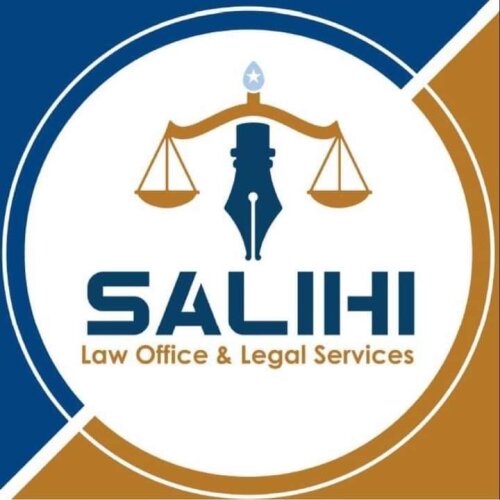Best Water Law Lawyers in Somalia
Share your needs with us, get contacted by law firms.
Free. Takes 2 min.
Or refine your search by selecting a city:
List of the best lawyers in Somalia
About Water Law in Somalia
Water Law in Somalia refers to the body of laws, regulations, and customary practices governing the use, management, and protection of water resources throughout the country. Because Somalia is situated in a region with variable rainfall and frequent droughts, equitable and sustainable water use is especially important. Water Law covers issues such as water rights, agricultural and urban water usage, groundwater management, environmental protection, water infrastructure, and the resolution of conflicts over water resources. Water management is closely linked to community livelihood, health, and economic growth. In recent years, Somalia has been working to modernize its water laws to better align with international standards and local needs.
Why You May Need a Lawyer
There are many situations where individuals, organizations, or communities in Somalia might require legal assistance regarding water resources. Common scenarios include:
- Disputes over access to or ownership of water sources such as wells, rivers, or boreholes
- Conflicts between communities or clans regarding water usage rights
- Legal requirements for drilling new wells or constructing water infrastructure
- Pursuing compensation for water pollution or environmental harm caused by third parties
- Negotiating water-sharing agreements with local authorities or neighboring communities
- Understanding regulatory obligations for businesses involved in water extraction, irrigation, or supply
- Protecting traditional water rights when government or commercial interests intervene
- Seeking clarity about international or transboundary water issues with neighboring countries
A lawyer with expertise in Water Law can explain your rights, ensure compliance with relevant regulations, represent you in disputes, and advise on sustainable and legal water management practices.
Local Laws Overview
Somalia’s Water Law framework includes both formal government laws and customary practices. The main national instrument is the Water Resources Law, which outlines the state’s role as the custodian of all water resources and establishes mechanisms for water management, allocation, and licensing. Key aspects include:
- Water is considered a public good and citizens have a basic right to access water for personal and livestock use
- Licenses or permits are required for commercial water use, large-scale agricultural irrigation, and the construction of major infrastructure
- There are environmental protections designed to safeguard water bodies and groundwater from pollution or overuse
- Customary law and traditional conflict resolution mechanisms play a significant role, especially in rural areas
- Regional authorities may have additional rules or procedures for managing water in their jurisdictions
- Compliance with international water treaties may be needed in border regions
- Penalties exist for illegal water extraction, contamination, or damage to water infrastructure
Understanding the interplay between statutory law, local regulations, and traditional practices is crucial for anyone dealing with water resources in Somalia.
Frequently Asked Questions
What do I need to legally dig a well on my land?
You typically need to obtain permission or a license from local or regional water authorities. Local customary rules may also apply, and you should consult with community leaders before starting any major water project.
Who owns the water resources in Somalia?
The state is recognized as the custodian of all water resources according to national law. However, customary and community-based ownership is also common, particularly in rural settings.
Can my business extract groundwater for commercial purposes?
Yes, but you need to secure the proper authorization or license from the relevant water authority and comply with environmental regulations to prevent over-extraction or contamination.
What should I do if my neighbor contaminates a shared water source?
You can attempt to resolve the issue through community mediation or customary dispute resolution. If that fails, you may file a complaint with local authorities or consult a lawyer to explore your legal options.
How are water disputes between different communities resolved?
Many disputes are resolved through traditional elders, local authorities, or special water committees. For persistent issues, legal intervention or government mediation may be necessary.
Are there penalties for illegal water use?
Yes, national and regional laws impose fines, license revocation, or even criminal penalties for unlicensed extraction, pollution, or intentional damage to water infrastructure.
Do I need government permission to install irrigation systems?
For small-scale or household systems, only basic approval may be required. Large-scale or commercial systems often need formal permits from water management authorities.
How does Somalia handle water issues along international borders?
International and bilateral agreements provide frameworks for shared water management with neighboring countries. Disputes or misunderstandings are typically addressed through diplomatic or legal channels.
What’s the role of traditional law in Water Law disputes?
Customary law, enforced by elders or local leaders, is highly influential, especially in rural areas. Formal law and traditional law often work together to maintain harmony and resolve conflicts.
Where can I get official information about water laws and permits?
You can contact the Ministry of Energy and Water Resources or your regional water authority. Legal professionals or NGOs involved in water projects may also be helpful sources of guidance.
Additional Resources
If you are seeking advice or information about Water Law in Somalia, the following resources can be helpful:
- Ministry of Energy and Water Resources: The primary government body for water management
- Regional and Municipal Water Authorities: Handle local permits and enforcement
- Traditional Elders and Local Water Committees: Offer customary dispute resolution and community guidance
- Legal Aid Organizations: Provide free or low-cost legal advice for water-related disputes
- International NGOs such as UNICEF and the Somali Red Crescent: Active in supporting water projects and policy development
Next Steps
If you need legal assistance in Water Law in Somalia:
- Identify the specific issue you are facing, such as a dispute, permit, or legal question
- Gather relevant information and documents, like land titles, permits, or evidence of disputes
- Consult your local community leaders or water committee if customary solutions are available
- Contact the Ministry of Energy and Water Resources or your local water authority to clarify regulations and procedures
- Seek out a qualified lawyer with experience in Somali Water Law for expert advice
- Consider reaching out to legal aid organizations if you need assistance but cannot afford private legal representation
Approaching water law matters with both legal and local context awareness will maximize your chances of a positive outcome. Always ensure your actions comply with both statutory law and accepted community standards.
Lawzana helps you find the best lawyers and law firms in Somalia through a curated and pre-screened list of qualified legal professionals. Our platform offers rankings and detailed profiles of attorneys and law firms, allowing you to compare based on practice areas, including Water Law, experience, and client feedback.
Each profile includes a description of the firm's areas of practice, client reviews, team members and partners, year of establishment, spoken languages, office locations, contact information, social media presence, and any published articles or resources. Most firms on our platform speak English and are experienced in both local and international legal matters.
Get a quote from top-rated law firms in Somalia — quickly, securely, and without unnecessary hassle.
Disclaimer:
The information provided on this page is for general informational purposes only and does not constitute legal advice. While we strive to ensure the accuracy and relevance of the content, legal information may change over time, and interpretations of the law can vary. You should always consult with a qualified legal professional for advice specific to your situation.
We disclaim all liability for actions taken or not taken based on the content of this page. If you believe any information is incorrect or outdated, please contact us, and we will review and update it where appropriate.
Browse water law law firms by city in Somalia
Refine your search by selecting a city.










